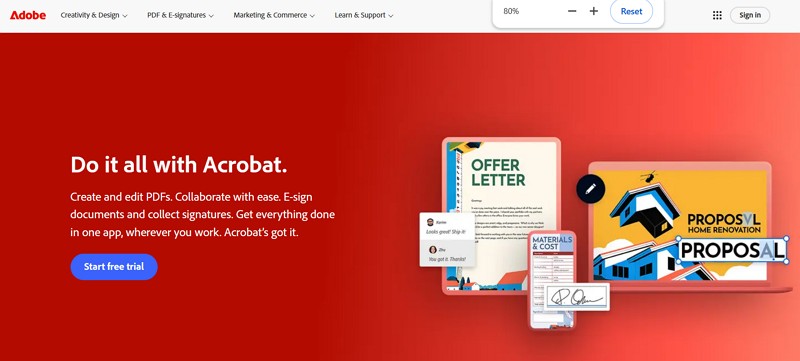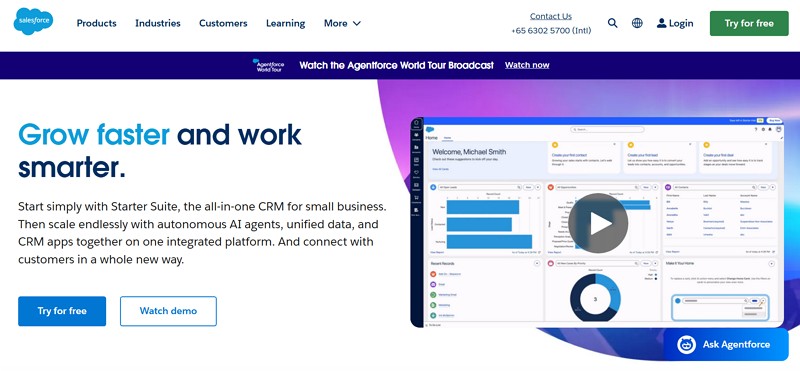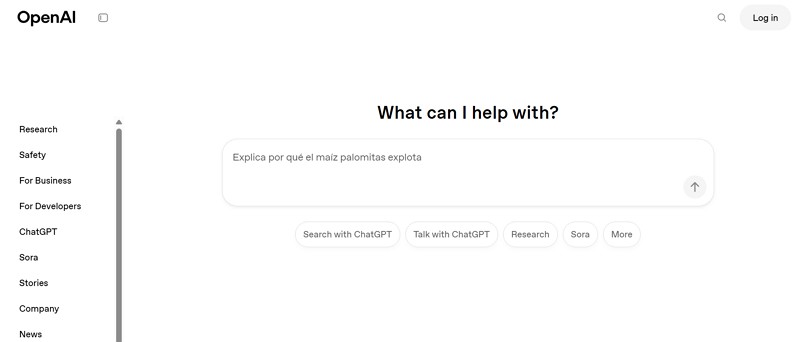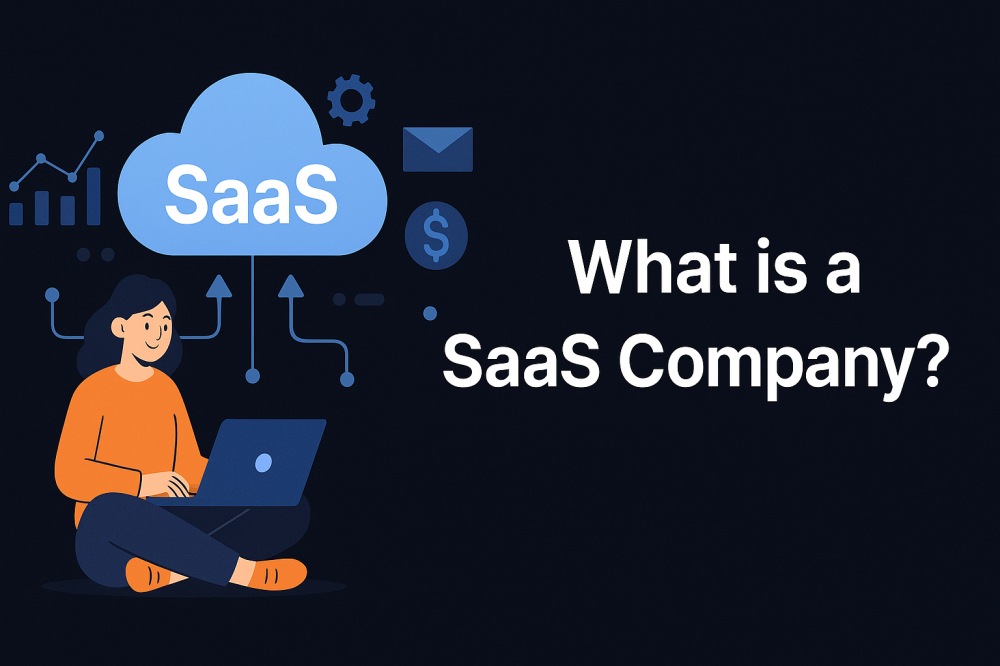Most businesses seek tools that are simple to operate, cheap, and fast to implement. A SaaS company comes in at this time by providing software that you can access online without complicated configurations. Consequently, this helps individuals to concentrate on their work and not on technical issues. Thus, this article will define what a SaaS company is and why so many individuals depend on it nowadays.
What is a SaaS Company?
A SaaS stands for Software as a Service, which is basically a business that gives people access to software through the internet. Users can open the service in their browser and start using it with a simple login from any connected device. Besides, these companies handle updates, fix issues, and add features, so users don’t worry about technical problems or downtime.
The majority of individuals tend to pay either monthly or annually to access the software as opposed to installing it once. Some famous SaaS examples include Dropbox for storage, Shopify for stores, and Google Workspace for emails and documents. Besides, many tools now use smart features, and you will often see new AI SaaS vendor company names in this space.
How a SaaS Company Works?
For a better understanding of how a SaaS platform works, you need to look at how it handles everything smoothly. Below, we will explore a few common points to help you know how these companies manage updates, support, and storage:
1. Cloud Hosting
A key part of the SaaS company definition is cloud hosting, where the software runs on remote servers. At this particular time, users open the service through a browser or app without installing anything. Additionally, the company handles storage, speed, and access, which makes everything smooth and effortless.
2. SaaS Subscription Model
To understand what is a SaaS company, you should know how the subscription model works for most of these services. Basically, users pay every month or year to keep using the tools, instead of buying software with a single payment. As a result, it helps companies grow steadily while giving users ongoing support and access to better features over time.
3. Managing Operations
It’s also important to see how they manage all technical work behind the scenes to fully grasp the SaaS company’s meaning. So, they take care of updates, fix bugs, improve security, and make sure everything runs fast without needing your attention. This way, users stay focused on their work while the SaaS team handles all background tasks smoothly and regularly.
4. Global Access
One reason people trust the top SaaS companies is the freedom to work from anywhere using just the internet and a browser. Here, companies like ZEGOCLOUD offer global communication APIs by covering 212 countries and making it easier to build apps that work across regions. Plus, it even supports real-time messaging, calls, and live features that connect teams worldwide without complex tools or local setup.
5. Customer Support
As we all know, all businesses care about customer retention, but in a SaaS business, it becomes 10 times more important for survival. So, SaaS companies grow mainly from existing users, and even a small drop in retention can hurt revenue in the long run. To keep users, top SaaS teams invest in fast replies, helpful onboarding, and tools that reduce confusion from day one.
Top 5 SaaS Companies to Know
It’s essential to look at successful companies using this model for a better understanding of the SaaS business model. Anyhow, the following parts cover 5 famous and successful SaaS companies that offer smart growth and strong user trust daily:
1. Microsoft

Microsoft helps explain the SaaS business meaning through services like Microsoft 365, GitHub, and its cloud platform, Azure. Besides, it leads in software innovation worldwide with over 1.3 billion monthly visitors and $261.8 billion in revenue. Since starting its SaaS journey in 2010, Microsoft has grown into a $3.90 trillion giant trusted by millions daily.
| Detail | Information |
|---|---|
| Founded | 1975 |
| Headquarters | Redmond, Washington, USA |
| CEO | Satya Nadella |
| Employees | 228,000+ |
| Market Cap | $4 trillion |
| Annual Revenue | $281.7 billion |
| SaaS Start Year | 2010 (Launch of Microsoft Azure) |
| Popular SaaS Tools | Microsoft 365, GitHub, Azure |
2. Shopify

This e-commerce platform helps people build online stores without knowing code or managing complex systems. Moreover, Shopify’s easy tools, strong support, and cloud access make it a trusted choice for online sellers. With 150 million monthly visitors and $9 billion in yearly revenue, it powers millions of small and large businesses globally.
| Detail | Information |
|---|---|
| Founded | 2006 |
| Headquarters | Ottawa, Ontario, Canada |
| CEO | Tobias Lutke |
| Employees | 8,100+ |
| Market Cap | $153 billion |
| Annual Revenue | $8.8 billion |
| SaaS Start Year | 2006 (Shopify launched as SaaS from the start) |
| Popular SaaS Tools | Shopify POS, Shopify Plus, Shopify Markets |
3. Adobe

Adobe is yet another famous company in the SaaS industry that provides creative products like Photoshop via its Creative Cloud. Furthermore, it has expanded every year since it made its powerful software easy to access and use, which it did when it transitioned to SaaS in 2013. Besides, it has nearly 100 million monthly visitors and earns $21.5 billion in revenue, which makes it a successful company.
| Detail | Information |
|---|---|
| Founded | 1982 |
| Headquarters | San Jose, California, USA |
| CEO | Shantanu Narayen |
| Employees | 30,709+ |
| Market Cap | $146.6 billion |
| Annual Revenue | $21.5 billion |
| SaaS Start Year | 2013 (Adobe Creative Cloud launch) |
| Popular SaaS Tools | Photoshop, Acrobat, Premiere Pro, Illustrator |
4. Salesforce

Among the big SaaS companies, Salesforce also stands out; it comes with cloud-based CRM tools used by 150,000+ businesses. Notably, it started in 1999 and now holds nearly 20.7% of the global CRM market, which shows lasting value. Still, this platform keeps shaping how companies manage customer relationships online with 4.6+ million organic monthly visitors.
| Detail | Information |
|---|---|
| Founded | 1999 |
| Headquarters | San Francisco, California, USA |
| CEO | Marc Benioff |
| Employees | 70,000+ |
| Market Cap | $281 billion |
| Annual Revenue | $37.9 billion |
| SaaS Start Year | 2000 (launched the first CRM platform) |
| Popular SaaS Tools | Sales Cloud, Service Cloud, Marketing Cloud |
5. OpenAI

It creates such AI tools as ChatGPT, which millions of people utilize to create, learn, write, and address daily challenges. In addition, OpenAI was created in 2015, and it currently boasts 1.2 billion+ visits each month and $12.7 billion in annual revenues. It also updates its tools with more intelligent versions, such as GPT-5 to enable individuals to complete jobs quicker.
| Detail | Information |
|---|---|
| Founded | 2015 |
| Headquarters | San Francisco, California, USA |
| CEO | Sam Altman |
| Employees | 4400+ |
| Annual Revenue | Estimated $12.7 billion |
| SaaS Start Year | 2020 (via OpenAI API & GPT-3 release) |
| Popular SaaS Tools | ChatGPT, GPT-5 API, Sora AI, DALL·E, |
Benefits of SaaS Companies
SaaS companies offer many advantages that help both businesses grow faster without spending too much time or money. Below, we will explore a few benefits of using a SaaS company that make your work much easier:
- Lower Costs: Most tools from a SaaS company use monthly plans that are cheaper than buying software with a one-time large payment. Hence, it helps users avoid high starting costs and manage their money better while getting regular updates and support.
- Updates and Fixes: Such a company takes care of software updates and bug fixes without needing help from the user’s side. Moreover, this means users always get the latest version with new features while avoiding issues that slow down their work.
- Access from Anywhere: You can use tools from a SaaS company on any device by logging in from any place with an internet connection. As a result, it gives freedom to work at home or in the office without carrying extra devices or drives.
- Scalability: These companies also allow users to upgrade their plan or add features as the business or team grows over time. Thus, people can even start small and grow big easily without switching to a new platform or tool completely.
- Built-in Security: They even handle your data using secure servers, so users don’t worry about setting up protection tools. Besides, it helps keep important work and files safe from hackers or data loss with strong privacy and safety systems included.
Risks of SaaS Companies
Even these companies offer great tools, but they also face serious challenges. Thus, this part gives you a few risks that each SaaS platform must handle wisely to stay strong and reliable:
- Data Hacking: SaaS platforms store customer data, so one major risk is getting hacked by online attackers looking to steal information. So, if the platform doesn’t protect user data well, it can lose trust, and customers may quickly leave the service.
- High Competition: Many SaaS platforms are offering the same kind of service, which makes standing out very hard for new companies. Additionally, even trusted platforms can lose customers fast if they don’t improve their service or add useful features.
- Cloud Issues: These platforms rely on cloud and internet services, so downtime or connection problems can stop people from using the tools. Here, a short break in service can lead to angry users and a bad reputation, which hurts the company’s progress.
- Growing Operating: As users grow, SaaS companies must spend more on support teams, servers, and better systems to keep the service smooth. Moreover, when the spending keeps rising faster than the earnings, the platform may face cash problems and slow down progress.
- Privacy Rule: Platforms that work in many countries must follow different legal rules to keep user data private and safe. Hence, they can face big fines or be blocked when these rules change often, and the company fails to keep up.
Best Practices when Choosing a SaaS Company
For picking the right SaaS provider, you must understand the SaaS company definition, compare carefully, and focus on long-term value. Thus, the following sections cover a few best practices to help your business grow, stay secure, and avoid future stress:
1. Business Needs
You should start by knowing what your business really needs and where it struggles the most every day. Therefore, check how your team works, where the delays happen, and what tools they usually use or need every day. Additionally, you should always fix a clear budget and focus only on tools that solve real problems within your spending range.
2. Prioritize Compliance
It is advisable to understand the SaaS company’s meaning to ensure your provider meets data safety rules like GDPR, HIPAA, or ISO 27001. Also, ask them for official certificates, encryption methods, and how they control access and protect customer information. Thus, strong compliance shows they take your data seriously and follow trusted industry standards that match your business type.
3. Check Reliability
In addition, check if the SaaS provider clearly shares their uptime promise, also called a Service Level Agreement (SLA). Besides, consider how often their system stays online, especially during work hours, and how they manage problems without long delays. Hence, a dedicated platform keeps a strong SLA, offers clear updates, and shows a record of stable and smooth service.
4. Check Users Support
In the SaaS industry, strong user support helps you solve issues faster and learn features without wasting time. Currently, you should seek a company that provides 24/7 support and live chat to resolve issues quickly at any time. Furthermore, ask for a free demo or trial to check how simple the platform looks and how smoothly it works every day.
5. Review Contract Details
Before finalizing the platform, always read the contract closely to check clear pricing, billing time, and any hidden costs. Alongside that, you should avoid long deals unless the offer gives real value and clear terms. In addition, check how to leave the service, what happens at renewal, and how to take your data safely if you move to another provider later.
Conclusion
To sum it all up, knowing what a SaaS company is will help you pick better tools that save you time and stress in your daily work. Besides, such platforms provide easy navigation, frequent updates, and robust security as they assist companies in their development without significant expenditures on the setup. Nevertheless, it is necessary to define the needs, conduct research, and plan ahead to choose the appropriate one.
FAQ
Q1: What is a SaaS company?
A SaaS (Software as a Service) company provides cloud-based software applications that customers can access online, typically via a subscription model, without installing them locally.
Q2: How does a SaaS company make money?
Most SaaS companies use subscription-based pricing (monthly or yearly), sometimes with freemium plans, pay-per-use models, or enterprise licensing.
Q3: What are examples of well-known SaaS companies?
Popular examples include Salesforce, Zoom, Dropbox, Slack, and HubSpot.
Let’s Build APP Together
Start building with real-time video, voice & chat SDK for apps today!










